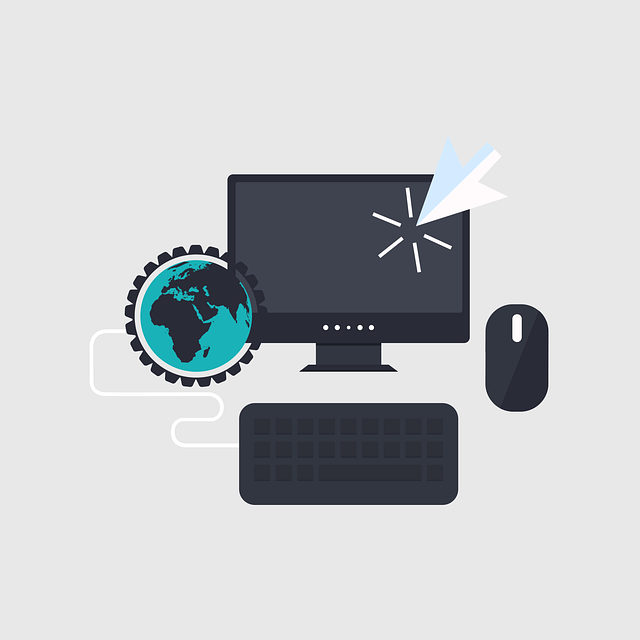Car repair shops can significantly enhance operations through AI automation for automotive repair scheduling, streamlining appointment booking, minimizing no-shows, and improving efficiency. This technology offers a seamless customer experience with online booking and real-time updates, allowing staff to focus on complex tasks. By leveraging AI algorithms, shops can predict common issues, optimize schedules, reduce wait times, and provide transparent vehicle progress tracking for clients. Integration requires strategic planning, including infrastructure upgrades, staff training, and robust data privacy measures to protect sensitive information.
“Unleash the power of AI automation for car repair shops and revolutionize your service processes. This comprehensive guide explores best practices for implementing AI in automotive repair scheduling, offering efficient workflows and an enhanced customer experience. From understanding the technology to navigating challenges, we delve into strategies that streamline operations, reduce wait times, and improve overall satisfaction. Discover how AI can transform your shop into a modern, competitive hub.”
- Understanding AI Automation for Car Repair Scheduling
- Implementing Best Practices: Efficient Workflows and Enhanced Customer Experience
- Benefits and Challenges: Navigating the AI Integration Process
Understanding AI Automation for Car Repair Scheduling

Car repair shops can greatly benefit from embracing AI automation for their scheduling processes, revolutionizing how they manage appointments and enhancing overall efficiency. By implementing AI-driven systems, shops can streamline the often tedious task of booking and rescheduling appointments, saving time and resources. These intelligent algorithms analyze historical data to predict customer demand patterns, enabling proactive scheduling and minimizing no-shows.
AI automation offers a sophisticated yet user-friendly experience for customers. Through intuitive interfaces, clients can easily book appointments online, receive real-time updates, and manage their schedules. This not only improves customer satisfaction but also allows shop staff to focus on more complex tasks, ensuring a well-oiled operation.
Implementing Best Practices: Efficient Workflows and Enhanced Customer Experience

Implementing best practices with AI can significantly transform car repair shops’ operations, leading to more efficient workflows and an enhanced customer experience. By integrating AI automation for automotive repair scheduling, shops can streamline their processes from initial appointment booking to final vehicle handover. This technology enables them to manage schedules effectively, reduce wait times, and offer transparent updates to customers throughout the repair process.
AI algorithms can analyze historical data to predict common issues, allowing mechanics to prepare in advance and conduct repairs more efficiently. Additionally, AI-powered customer communication tools can provide real-time notifications, digital estimates, and seamless online booking, making it convenient for clients to engage with the shop and follow their vehicle’s progress.
Benefits and Challenges: Navigating the AI Integration Process

Integrating Artificial Intelligence (AI) into car repair shops brings about a myriad of benefits, primarily in streamlining operations and enhancing customer experience. AI automation for automotive repair scheduling can significantly reduce manual effort, minimizing errors and maximizing efficiency. Intelligent systems can analyze vast amounts of data to predict maintenance needs, optimize appointment slots, and automate routine tasks like booking and reminders. This not only improves turnaround times but also boosts customer satisfaction with personalized services.
However, the process of integrating AI is not without its challenges. It demands a strategic approach that considers the existing infrastructure and workflows within the shop. Training staff to adopt new technologies can be a significant hurdle, requiring continuous support and upskilling. Additionally, ensuring data privacy and security during AI implementation is paramount, as repair shops handle sensitive vehicle and customer information. Balancing these aspects requires careful planning and collaboration between technology providers and shop management.
AI automation for automotive repair scheduling offers significant advantages in streamlining operations, improving efficiency, and enhancing customer satisfaction. By implementing best practices, car repair shops can optimize their workflows, reduce wait times, and provide a more seamless experience. However, successful integration requires careful planning to address potential challenges, ensuring that AI complements the human expertise already present in these workshops. Embracing AI automation is a strategic move towards a future where automotive repairs are faster, more precise, and better suited to meet modern vehicle technology.
